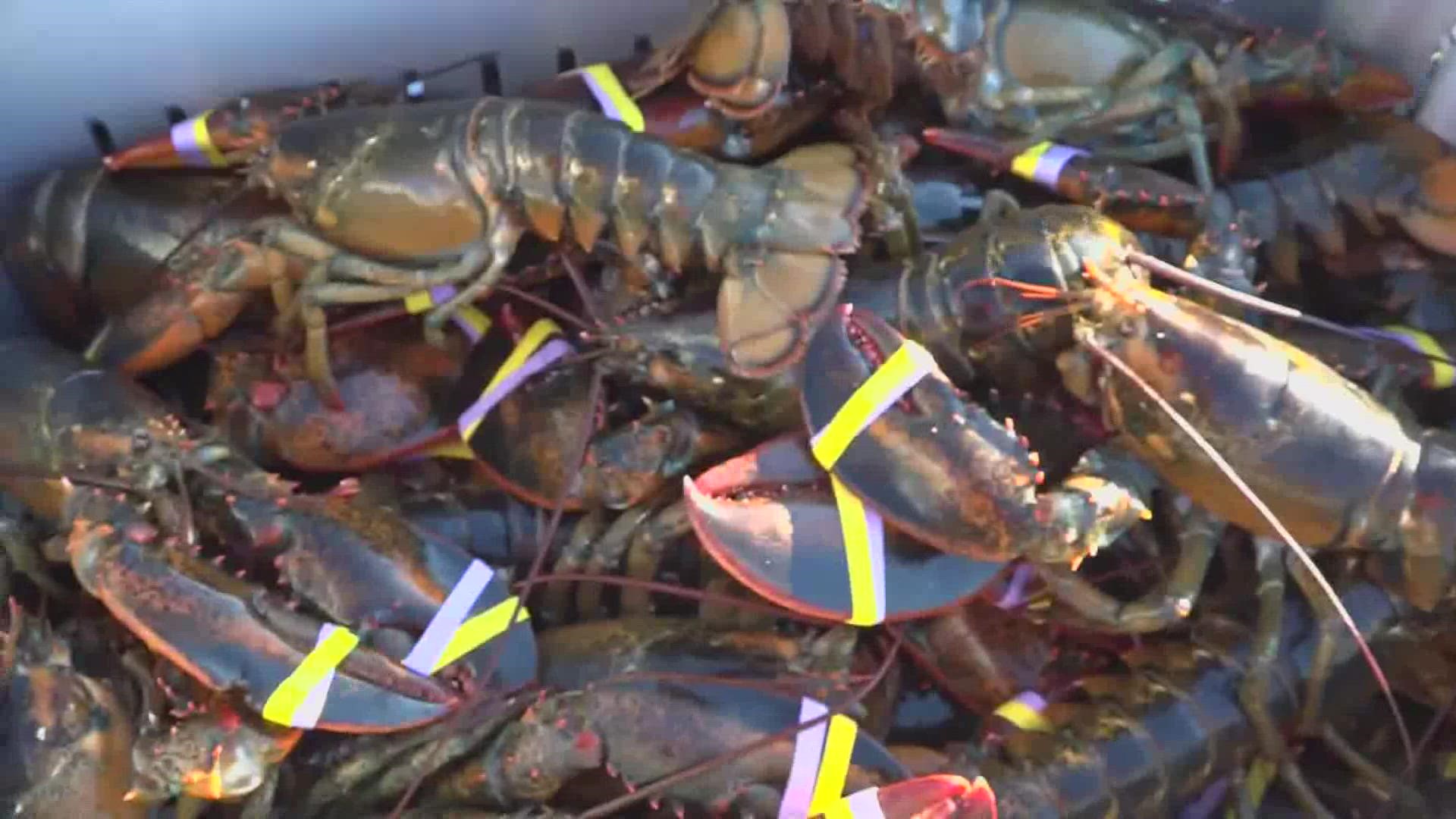PORTLAND, Maine — Maine’s lobster industry is abiding by a new set of trap regulations that started Sunday. Federal regulators have said enforcement would be slow at first, but lobster fishermen have said the new rules will lead to financial losses.
The new regulations mandate multiple breakpoints in the ropes that fishermen use to pull up traps to prevent entanglements of critically endangered North Atlantic right whales.
Steve Train, a lobsterman based out of Long Island, has been lobster fishing all his life and said regulations were industry-guided for decades.
“The overriding thing has always been if I can do this and make a living, how can I make sure the next group can, too?” Train said. “We have outside influences on the industry. … It’s not what we’re used to.”
Train said no right whales have been entangled in Maine lobster gear for more than 20 years.
“The problem we have is [that with] the law we’re working under, I’m not going to disparage the endangered species act. It was a noble thing to do, but it’s misdirected at us,” Train said.
The National Oceanic and Atmospheric Administration agreed, saying only 1 percent of rope scars on right whales have been linked to fishing equipment, NOAA communications supervisor Allison Ferreira said in an email to NEWS CENTER Maine.
NOAA also said in a statement that humpback and minke whale injuries have been linked to Maine fishing gear, so the potential risk to right whales exists, according to NOAA.
“My problem with all of this right now is we don’t believe, as an industry, that we are the problem," Train said. "You’re not finding our rope on the creature.”
Train said the industry could also be impacted financially, adding the breakpoints in the rope can break under normal fishermen pull strength.
“If we lose traps because of the law this year there’s going to be financial losses, these traps aren’t free," Train added.
NOAA said that because of supply shortages affecting the global market, including new breakaway ropes, they won’t be enforcing the new laws immediately on May 1 but will institute a gradual enforcement over time, increasing penalties as supply issues are resolved.
“The enforcement has to be slow. The time period we were given to comply wasn’t up to speed with manufacturing and industry,” Train said.

